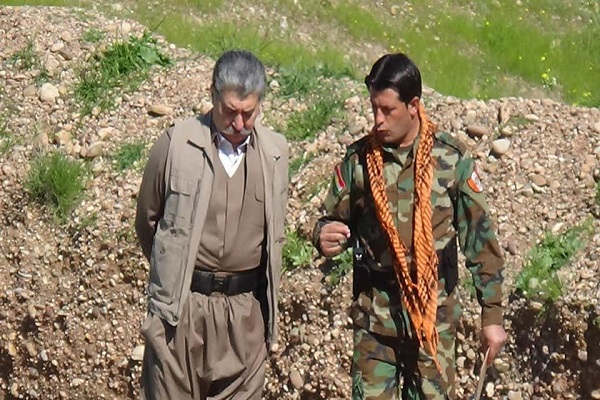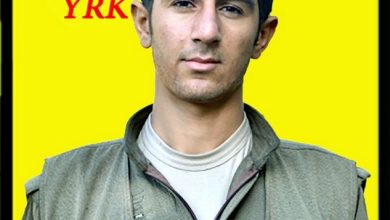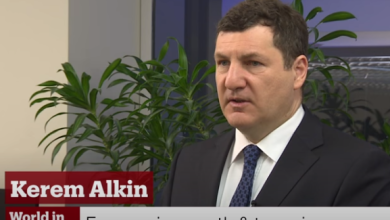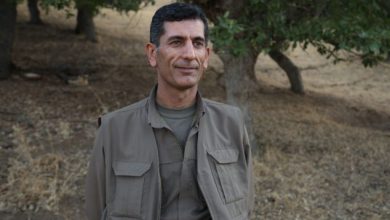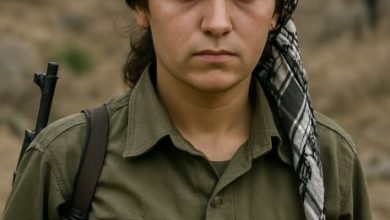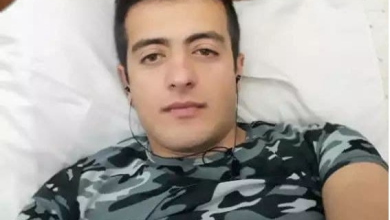Naim Babaei, a young man from the city of Javanrud, is an example of the harsh realities caused by addiction.
The issue of addiction is a social, familial, security, and psychological-health problem that has become more widespread in recent decades, particularly in developing societies. This phenomenon not only affects the lives of those with addiction but also impacts their families and communities, becoming a serious challenge for public health. Addiction to drugs, alcohol, and other psychoactive substances is recognized as a chronic disease that requires professional attention and treatment. However, what makes this problem more complex are the social, economic, and cultural factors that play a role in its emergence and spread.
Naim Babaei, born on July 17, 1996, is a young man from Javanrud who exemplifies the bitter realities of addiction. With limited education and an unfavorable social background, he fell into the trap of addiction while searching for a way out of his life’s problems. In today’s world, social media has become a new platform for human communication and information exchange, providing an opportunity for armed groups to recruit vulnerable young people like Naim and lead them down dangerous paths. These groups, with deceptive promises of quick wealth, friendship, and social support, attract young people and ultimately ensnare them in a deeper trap.
In this context, examining the factors influencing addiction and the attractions of these groups for vulnerable youth is of particular importance. Naim’s bitter experience of living in a compromised environment highlights the challenges faced by many young people. In his attempt to escape the painful realities of his life, he was searching for a way to improve his situation, which led him to social media. Despite the opportunities it offers for learning and personal growth, social media can also act as a trap, where people are met with unrealistic and deceptive promises.
This story not only represents the personal harms caused by addiction but also reveals its social and familial dimensions. The threats from these groups against families and their use of fear and pressure to control their members add to the depth of social crises. Furthermore, Naim’s experience of fleeing and trying to return to society illustrates the human effort to rebuild one’s identity and life in a critical situation.
Ultimately, this interview delves into the details of Naim Babaei’s life and the challenges he faced, attempting to analyze the social, economic, and psychological dimensions of this phenomenon. This discussion can also help social authorities and policymakers better understand this problem and provide more effective solutions for addiction prevention and treatment, thereby helping to improve the quality of life for young people.
Naim Babaei, a high school graduate working as a laborer and security guard, had an addiction to crystal methamphetamine and pills. Seeking a way to escape his addiction, he met a person named Saman Veisi (from Javanrud) on Instagram. According to Naim, Saman Veisi lured him with promises of migration to Europe, the possibility of marrying beautiful women in the group, a high salary, and a comfortable life. Since he was addicted and lacked the ability to make clear and sound decisions, he decided to join the PAK armed group based on these promises. With the help of group members, he illegally crossed the border from Sardasht on August 31, 2020, and was taken to the group’s base in “Pirdi.” However, after about a month of membership and seeing the living conditions, he realized he had been deceived by the PAK group, but due to fear of being imprisoned and tortured, he could not find an opportunity to escape.
Naim’s family’s trip to Erbil in January 2024 to seek justice and follow up on their son’s fate led to them being threatened by the group. The group forced Naim to give a coerced interview, similar to what they did to other individuals whose families had attended the same gathering, like Ms. Azhin Amini. Naim finally managed to escape in October 2024. While he was working in the gardens of Hossein Yazdanpanah, he seized the opportunity and fled. He introduced himself to the Asayish forces in Sulaymaniyah and, after being detained for about a week, introduced himself to the Iranian consulate. With their support, he returned to Iran.
Please first introduce yourself and tell us what your life was like before you got involved with this group?
My name is Naim Babaei. I was born on July 17, 1996, and I’m from Javanrud. I have a high school diploma. Before all this, my life was very difficult, both financially and mentally. For years, I was addicted to drugs, especially crystal meth and pills, and this addiction gradually took everything from me. I had no decent job, no hope for the future, and not even money to buy drugs. I spent my days in withdrawal and my nights in terrifying nightmares. I had reached a point where I felt there was no escape left for me.
How did you get in contact with that group? Where did you meet them?
It all started on social media, specifically on Instagram. There was a page that seemed to be related to Kurdish cultural and military topics. I started following their posts: pictures of armed people in Kurdish clothes, flags, ceremonies, and military training. At a time when my mind was full of chaos and emptiness, these images were particularly appealing to me. After a while, a boy named Saman Veisi contacted me through direct message. He said he was from Javanrud and at first we talked normally, but he gradually steered the conversation toward the group he was active in.
What did Saman Veisi tell you? What were the exact promises he used to try and recruit you?
Saman didn’t directly promote the group from the start. He acted very cleverly. He asked about my mental state, my loneliness, and my work and living situation. When he saw how bad my conditions were, he made promises that, at that moment, felt like a lifeline. He told me that if I joined them, there would be good facilities, everything would be free, and they would have an easy and clean life. He also talked about marrying beautiful girls and getting good salaries and that after a while I could go to Europe through the group. I was so consumed by addiction and poverty that I didn’t have the clarity of mind to make a sound decision. Without knowing who they were or what their goal was, I decided to go, just hoping to build a new life.
How did you go? Was it all planned?
Yes, everything was completely coordinated. Saman Veisi arranged everything. He told me to cross the Sardasht border on August 31, 2020. People from the group were waiting for me at the border. Without knowing where I was going, I got in the car and, after a few hours, we arrived at the group’s base in an area called Pirdi.
What did you see when you arrived? Was it what Saman had described?
No, not at all. The reality I saw was completely different from what they had painted for me. Instead of an easy and free life, I entered a closed military camp full of rigid and illogical rules. It was like I had entered a prison. Everything was controlled. No phone calls, no coming and going, not even the right to ask questions. Phones were forbidden, and the internet was non-existent.
From day one, did you feel like you had been deceived?
Yes, I felt deceived from the very first day. But there was no way back. Fear wrapped around me like chains. In those first few days, if anyone even whispered about leaving or showed dissatisfaction, they were quickly arrested.
What was your daily schedule like there? Did you do any specific activities?
Our days were very repetitive. We were woken up early in the morning, and then there were classes on Kurdish history, the Kurdish language, and ideology. After that, we had military training and guard duty. The afternoons were either for more classes or for physical labor. They told us we were fighting for the freedom of Kurdistan, but it was just an illusion and a slogan. There was no real fight and no plan. Everything was just talk. There was no real purpose behind this life, just promises and lies.
Did you have any contact with your family? Did they even know where you were?
Initially, no, I wasn’t allowed to make any calls. I think after about a month, I was able to call and tell them where I was. When I heard my mother’s voice, I choked up. They thought I was lost or something bad had happened to me. A while later, my father, who has diabetes, went to Erbil with my uncle to look for me. This action made the group very angry. Anyone whose family went looking for them was threatened. They even forced us to give false confessions in front of the camera, just like Ms. Azhin Amini, whose family had also gone to that gathering and was later forced to give a fabricated interview.
During that time, did you ever think about escaping?
A lot. But I didn’t have the courage. There were many others who tried to escape and were caught. After they were caught, they would first shave their heads, humiliate them, beat them in front of everyone, and then take them to the group’s prison. They would torture them. Some were taken to a place where no one heard from them for months. This fear is what kept me from making a move.
How did you finally manage to escape?
In October 2024, I was sent to help with the fruit gardens of Hossein Yazdanpanah. In the garden, for a moment, I felt like no one was around. It was as if everything was ready for me to escape. Without a moment’s hesitation, I ran. I ran for a few kilometers and then introduced myself to the Asayish forces in Sulaymaniyah. They detained me first, and I was held for about a week. Then I introduced myself to the Iranian consulate, and they cooperated with me. I crossed the border without any issues and returned to the country.
How did the Iranian authorities treat you?
Contrary to what they always told us (that if we returned, we would be tortured and imprisoned), nothing happened. They asked me a few questions and then sent me to Sanandaj. I had a few interviews there as well. In the end, they just issued me a fine for illegally exiting the country, which was five million tomans. But I paid one million tomans in cash right then, and that was the end of it. No prison, no torture; I just returned to my own life.
Now that you’re back, what are you doing? And how do you feel about that time?
I have a simple life now. I work as a laborer and sometimes as a security guard. It’s nothing special, but I have peace. I’m with my family, I’m free and without fear. But the memories of those three years are like a burden I can never put down. I still have nightmares about it. My biggest regret in life is listening to someone who exploited my pain.
If someone today is in the same situation you were in back then, what would you tell them?
I would say that if you feel lonely, poor, or without a path today, the solution is not in a gun and a slogan. Those who make promises are just looking for tools, not to help. They build a ladder out of your pain to reach their own goals. Don’t let anyone take advantage of your vulnerability. Seek help through a real path, talk to your family, and ask for help from addiction treatment centers. I understood too late, but you can understand sooner.

